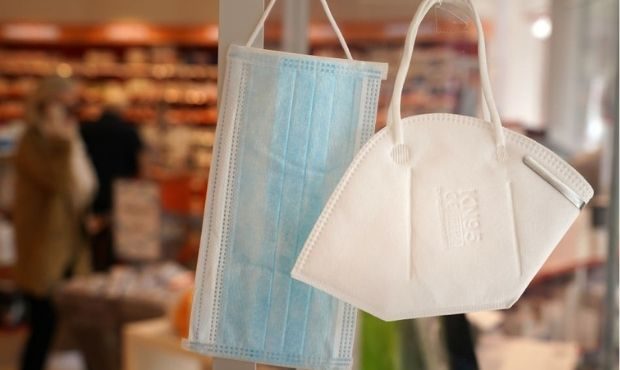


Gov. Jay Inslee announced a new statewide mask mandate this week, set to take effect on Monday, Aug. 23. But what exactly does it entail, and how long will it remain in place?
The new directive means that facial coverings are required in all indoor public settings, regardless of vaccination status. That includes retail locations, grocery stores, bars, restaurants, indoor music venues, and nightclubs, as well as any other business that is “generally accessible” to the public.
Masks must fit snugly against the sides of the face, completely cover the nose and mouth, and be secured with ties, ear loops, elastic bands, or an “other equally effective method.”
While this new mandate applies to both vaccinated and unvaccinated Washingtonians, there are several exceptions. Children younger than 5 years old, and people with a medical, mental health, or developmental condition are not required to wear a mask.
Other exceptions include:
While masks are not required in outdoor settings under this new mandate, they are still “strongly recommended” by state health officials. That includes sporting events, fairs, parades, concerts, outdoor music venues, “and similar settings where there is decreased ability to consistently maintain physical distance between non-household members.”
Additional restrictions remain at the discretion of individual concert and sporting venues.
Seattle’s Lumen Field requires all fans to wear masks in indoor areas of the stadium, while unvaccinated guests will be required to wear masks at all times “except while actively eating or drinking.” Those rules will go into effect starting on Monday, Aug. 23, and will first apply to Seahawks fans in attendance at the team’s Aug. 28 preseason game versus the Los Angeles Chargers.
COVID-19 cases and hospitalizations have skyrocketed over the last month, due in large part to the increasing prevalence of the highly-infectious delta variant.
Health officials estimate that the delta variant is now responsible for roughly 98% of the state’s COVID-19 cases. Meanwhile, seven-day rolling averages have reached similar levels to what Washington saw during the peak of last winter’s surge, rising to over 2,700 new cases per day. COVID hospitalizations have trended up in kind, and are now at the highest they’ve ever been since the start of the pandemic.
“The action we’re taking today is to stem the tide,” state Secretary of Health Dr. Umair Shah said during a Wednesday press conference. “When you put a mask requirement in place, what we’re saying to people is pay attention, the delta variant is real, and we’re very concerned about this.”
For now, the state is not reducing capacity or shutting down businesses or events, with Gov. Inslee indicating that officials “will evaluate this every single day to see what may be in the realm of necessary.” He also expressed optimism that further measures may not be necessary provided masking rules are followed.
“We are hopeful that these measures will restrain the pandemic,” Inslee said Wednesday. “If they don’t, we’ll have to look at other tools, and we’ll make good decisions at the time that’s appropriate.”
Inslee also outlined a larger goal to ensure businesses and schools stay open, and to exhaust all other public safety measures before considering closures and capacity reductions.
“We did the right thing this spring when cases were going down and vaccinations were going up,” he noted. “What we’re doing instead of shutting down businesses and schools is continuing on that path by using tools that will allow us to keep those open, and that’s masks and vaccines.”
You can read full details on the state’s mask mandate here.
In a quantitative study from the US National Library of Medicine National Institutes of Health, masks were proven to offer protection against droplets from a sneeze or cough.
“Without a face mask, it is almost certain that many foreign droplets will transfer to the susceptible person,” the study stated. “Wearing a mask will offer substantial, but not complete, protection to a susceptible person by decreasing the number of foreign airborne sneeze and cough droplets that would otherwise enter the person without the mask.”
Additionally, the study concluded that a typical cloth or surgical mask will not offer 100% protection, even if you have a snugly fitted mask, when face-to-face with a cough or sneeze. The N95 masks did provide 100% protection.
In conclusion, the study found that wearing a mask and avoiding face-to-face contact or frontal interactions as much as possible will help prevent the transmission of virus particles found in coughs and sneezes.